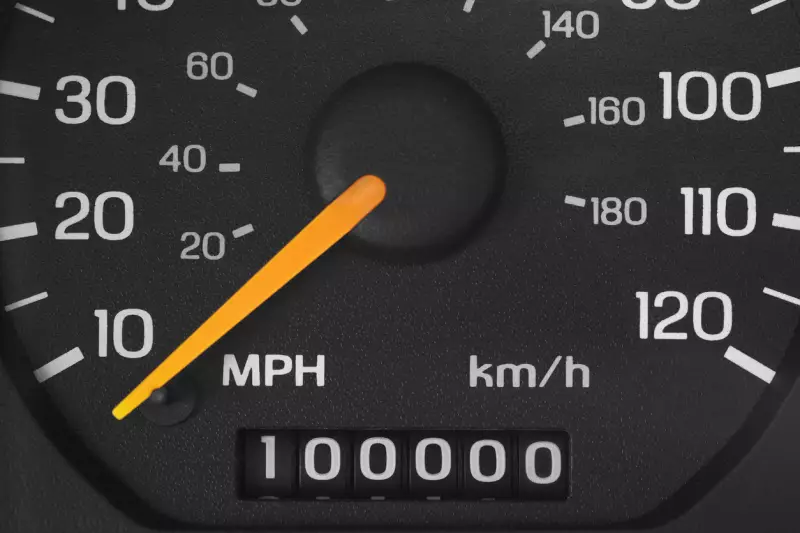Understanding mileage is crucial when shopping for a used car. Mileage indicates how much a car has been driven and can impact its value and reliability. Knowing what constitutes good mileage for used cars helps buyers make informed decisions.
For instance, some of the best cars to buy in the United States, like the Toyota Camry and Honda Civic, often have impressive longevity. These models can still be reliable even with higher mileage. By learning about used car mileage, you can find the right vehicle that meets your needs and offers great value.
What Does Miles Mean on a Car?
Mileage refers to the total number of miles a car has been driven. It is measured using an odometer, which is located on the car’s dashboard.
Significance of an Odometer Reading
The odometer reading provides direct insight into the car's usage. Higher mileage generally means the car has experienced more wear and tear. A lower odometer reading is often preferable when evaluating used car mileage, indicating less overall use.
Reflecting Car Usage
Mileage reflects how frequently a car has been driven and the distances it has covered. For example, a car with 50,000 miles has been driven more than a car with 20,000 miles.
Other Impacting Factors
While mileage is important, it’s not the only factor that impacts a car’s condition. Regular car maintenance plays a crucial role in a car's longevity. A well-maintained car with higher mileage can be in better condition than a poorly maintained car with lower mileage. Additionally, driving conditions affect wear and tear. City driving often involves more stop-and-go traffic, which can be harder on a car than highway driving, which is smoother and more consistent.
Why Does Used Car Mileage Matter?

Buyers can make more informed decisions and avoid potential issues by comprehending why used car mileage matters. Here are some key reasons why used car mileage is so important.
1. Impact on Car Value
Mileage significantly affects the value of a used car. Typically, cars with lower mileage are valued higher because they are perceived to have more remaining life. Good mileage for a used car indicates that the vehicle has been driven less, making it a more attractive option for buyers.
2. Future Maintenance and Repair Costs
Additionally, high mileage can lead to increased maintenance and repair costs. As cars accumulate miles, their parts wear out and require replacement. For example, a car with high mileage might need a new timing belt, brakes, or transmission sooner than a car with lower mileage.
3. Resale Value Considerations
Mileage also impacts a car’s resale value. When it’s time to sell the car, buyers will consider the odometer reading just as you did when purchasing. Used cars with good mileage tend to have higher resale values. Conversely, cars with high mileage might be harder to sell and fetch lower prices. Understanding used car mileage and its impact on resale value can help you invest wisely.
What Is Good Mileage for a Used Car?
So, how many miles is good for a used car? Good mileage for used cars generally means the vehicle has been driven less than 12,000 miles per year. This average range indicates that the car has not been excessively used. For instance, a five-year-old car with 60,000 to 75,000 miles is typically seen as having good mileage for used cars.
Type of Car and Intended Use
The type of car and its intended use can affect what is considered good mileage. Smaller cars and sedans often have a lower tolerance for high mileage than trucks and SUVs. If you plan to use the car for daily commuting, a vehicle with lower mileage might be more desirable. However, slightly higher mileage might be acceptable if the car is for occasional use.
Evaluating Mileage for Specific Models
Likewise, when evaluating whether a specific car model's mileage is good, research its average lifespan. Some cars, like the Toyota Camry and Honda Accord, are known for longevity and can remain reliable even with higher mileage. Checking the car’s maintenance records is also essential. Additionally, consider getting a vehicle history report to ensure no hidden issues.
How Many Miles Is Too Much for a Used Car?

Generally, a used car with over 100,000 miles is considered to have high mileage. At this point, the car may have experienced significant wear and tear. While some vehicles can still perform well beyond this threshold, it’s important to approach high-mileage cars with caution.
Risks of High Mileage
Very high mileage can lead to increased risks of mechanical issues and breakdowns. Parts such as the engine, transmission, and suspension may have undergone extensive use and could be more prone to failure, meaning more frequent repairs and higher maintenance costs.
Thorough Inspection and Maintenance History
A thorough inspection and review of the maintenance history are crucial for high-mileage cars. A well-maintained car with over 100,000 miles might still be reliable. Check for regular oil changes, timely parts replacement, and other maintenance records. It is also advisable to get a professional mechanic to inspect the car for hidden issues.
When to Avoid a Used Car
You should avoid a used car with exceptionally high mileage, especially if the maintenance history is incomplete or shows signs of neglect. Cars not regularly serviced or with major repairs pending will likely cause more trouble.
Understanding used car mileage is essential when buying a used car. Good mileage for used cars is typically under 12,000 miles per year. High mileage, especially over 100,000 miles, can increase maintenance and repair costs. However, always consider the car’s maintenance history and overall condition alongside its mileage. Thorough research and professional inspections are crucial to making an informed decision. By evaluating all these factors, you can determine how much mileage is too much for a used car and make a smart purchase that offers good value.




















